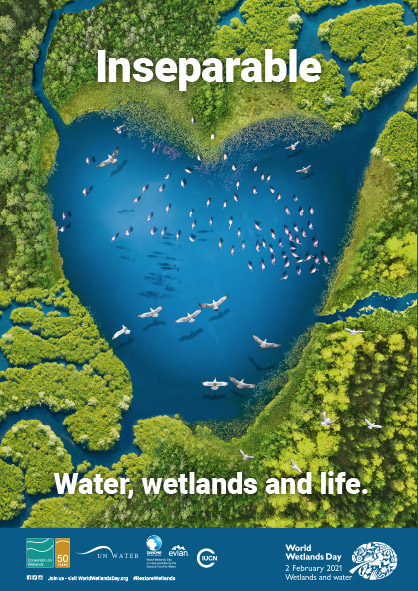
Wetland, as one of the three major ecosystems on the earth, is the transition zone between land and water. Due to the abundant resources of terrestrial and aquatic animals and plants, wetlands have natural gene pools and unique habitats that no other single ecosystem can match, and they also have a great impact on our lives.
On February 2, 1971, the 18 sponsoring parties signed the global intergovernmental protection convention “Wetland Convention” for the first time, and in 1996, each year February 2 was established as World Wetland Day, so as to carry out various activities to improve The public’s awareness of wetlands will promote wetland protection. The themes of Wetland Day in 2021 are water, wetland and life.
The wetland is known as the “cradle of life”, the “kidney of the earth” and the “paradise of birds”. It can be used directly as a water source or supplement groundwater, and it can effectively control floods and prevent soil desertification. It can also retain sediment, toxic substances, and nutrients, thereby improving environmental pollution; it can store carbon in the form of organic matter and reduce greenhouses Effect, protect the coast from the erosion of wind and waves, and provide a clean and convenient transportation method. Because of its special hydrology, soil and climate, it provides a complex and complete flora and fauna community. 40% of the species live and reproduce here, which has an irreplaceable ecological value for protecting biodiversity.
But climate change is making wetlands disappear. First, climate change may lead to an imbalance in precipitation, rising sea levels and reducing wetland areas. Second, wetlands such as peatlands play an irreplaceable function in mitigating the greenhouse effect and coping with climate change. The disappearance of these wetlands will also cause us to lose the earth’s important carbon storage and carbon absorbers.
